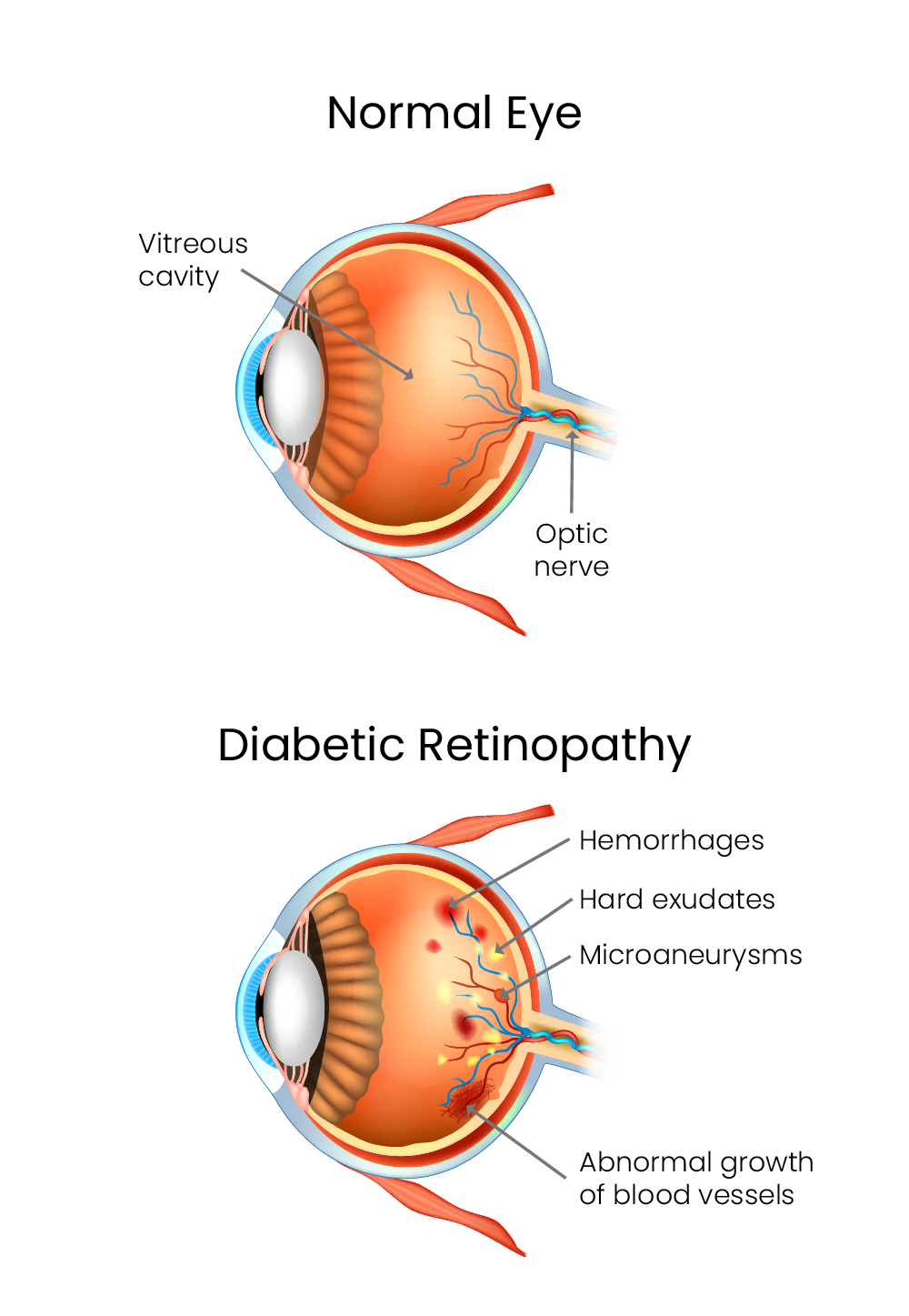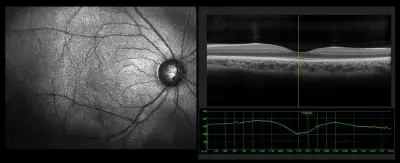Retinal Vascular Disease
Your guide to causes, symptoms and treatments.
What is Retinal Vascular Disease?
Retinal vascular disease refers to disorders affecting the intricate network of veins, arteries and capillaries that supply the retina with blood and nutrients and remove any waste products. When a piece of this network is blocked, leaks fluid, ruptures or is otherwise damaged, it leads to vision impairment and vision loss.
The doctors at The Eye Health Centre are very knowledgeable about retinal vascular diseases. We work closely with our patients to provide prompt diagnosis and a range of treatment strategies. The sooner these problems are diagnosed and treated, the better the overall prognosis.


What are the symptoms of Retinal Detachment?
The symptoms of retinal vascular disease vary based on the nature of the damage to the blood vessels, and how severely blood supply to the retina is affected.
Symptoms include difficulty with color perception and intermittent or permanent blurring or distortion of vision that makes it difficult to read. A dark shadow or curtain may appear to drift across the visual field, and floaters can also appear. The symptoms can wax and wane over time. Some patients experience temporary or permanent vision loss.
In most cases, the disease is painless, although patients with hypertensive retinopathy may report headaches.
What are the types and causes of Retinal Vascular Disease?
Common types of retinal vascular disease include the following:
- Diabetic retinopathy
- Hypertensive retinopathy
- Retinal artery occlusion
- Retinal vein occlusion
Often these disorders can be traced back to a pre-existing health problem that similarly affects other blood vessels throughout the body (e.g., high blood pressure, heart disease, diabetes, elevated cholesterol).
How we diagnose and manage Retinal Vascular Disease
Retinal vascular disease is most often diagnosed with a comprehensive eye exam. Special instruments are used to magnify and examine the tiny blood vessels in the retina. Retinal imaging tests including fluorescein angiography and optical coherence tomography are valuable in obtaining images of the retina that reveal fluid leakage, swelling and other problems.
The first step to getting retinal vascular disease under control is usually to identify and treat pre-existing health problems, such as high blood pressure, diabetes and elevated cholesterol. This involves coordinating with your general health practitioner and any other health specialists that you normally see. You may need to adjust your medications or make lifestyle changes to bring your numbers into a more manageable range.
How we treat Retinal Vascular Disease
Beyond that, treatment is completely personalised to your specific needs. Our goal is to control areas of vascular blockage, leakage and/or swelling and manage any complications that have occurred due to these problems. Some of the solutions that we often rely on include intravitreal injections, laser surgery and vitrectomy surgery.
When we consult with you about your treatment options, we will go over all of the benefits and potential risks and help you decide how you would like to proceed. We can explain the likely visual outcomes you can expect with each option.
It is recommended that even after treatment, you continue to have routine eye examinations to check your retina for any new problems.
Do you have a question or concern about your eye health? To discuss your condition with an experienced ophthalmologist or optometrist, please contact The Eye Health Centre

